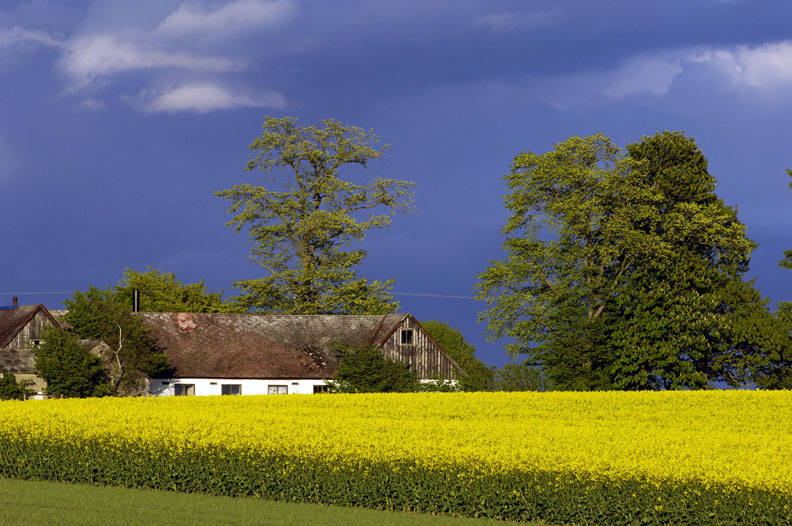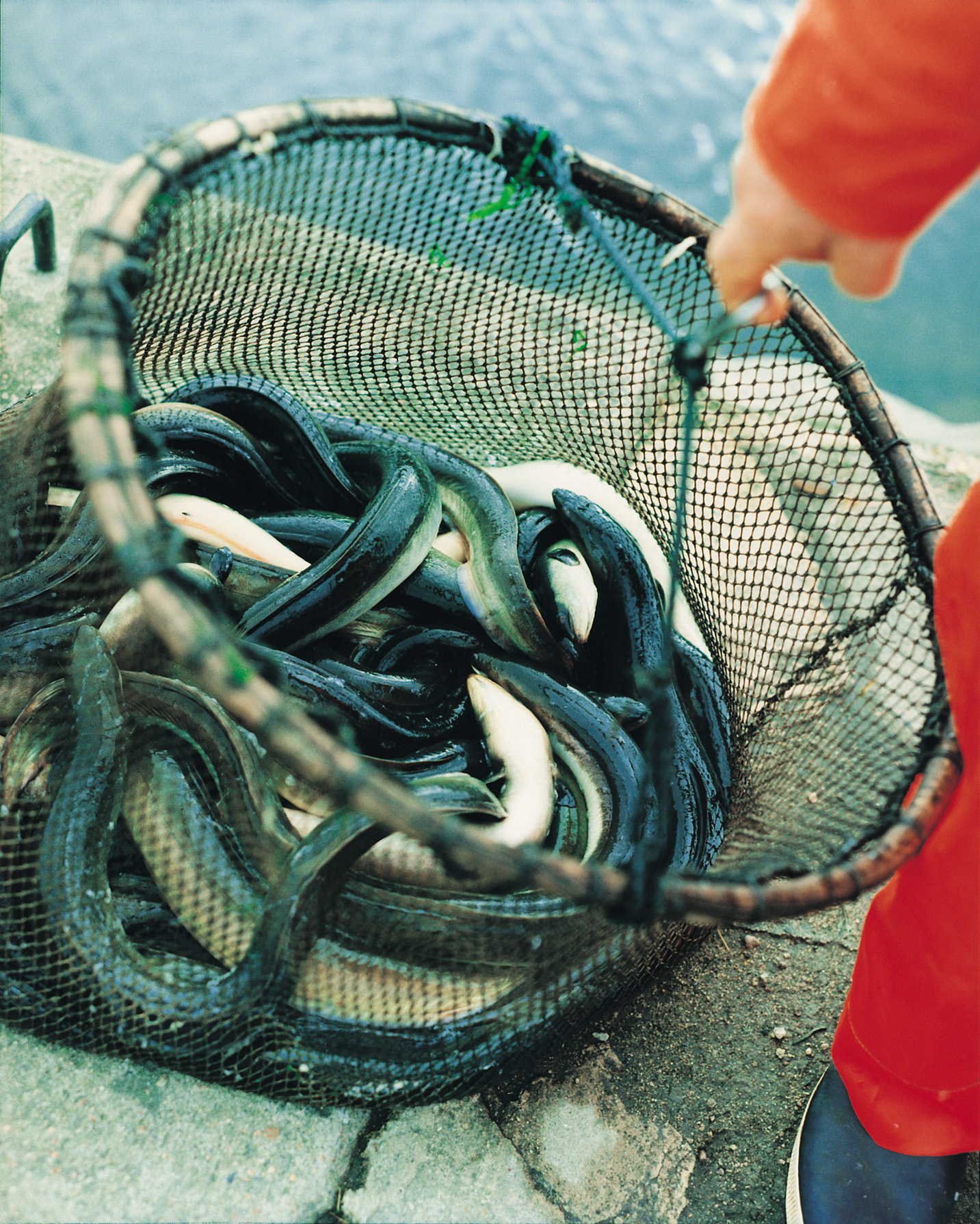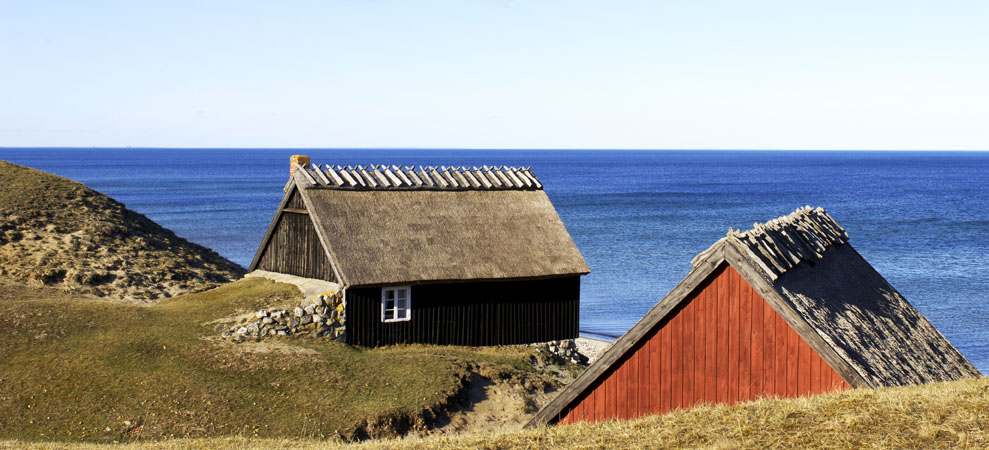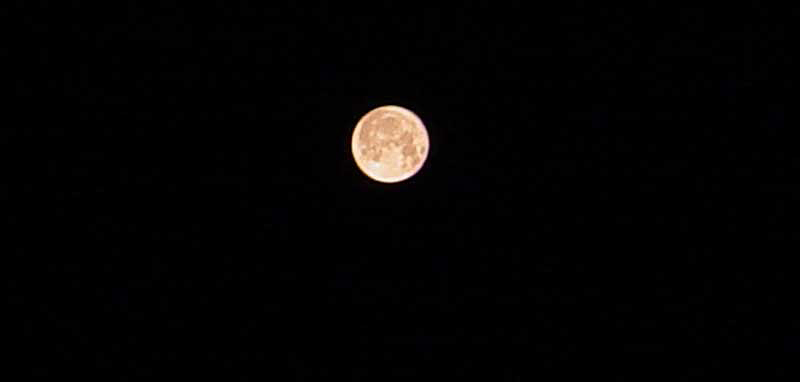A darkness in the fall signals celebration
When the moon is on the wane and the nights have grown darker in the fall, people in the south of Sweden speak of the 'eel darkness'
-
 The eel coast - Ålakusten - along the southeastern coastline of Skåne, coastal section of Österlen, was once home to Sweden's largest fishing fleet. Now prime farmland not far from coastal town Simrishamn. Photographed for Nordic Reach by Andreas Hylthén.
The eel coast - Ålakusten - along the southeastern coastline of Skåne, coastal section of Österlen, was once home to Sweden's largest fishing fleet. Now prime farmland not far from coastal town Simrishamn. Photographed for Nordic Reach by Andreas Hylthén. -
-
'Ålamörkret' - a darkness that precedes Ålagillet.
When the moon is on the wane and the nights have grown darker in the fall, people in the south of Sweden speak of ålamörkret the “eel darkness”, the reason being that the eels are now unable to see the nets and can be trapped on their way to the Sargasso Sea. The period runs from mid-August until November when eel in great quantities pass the southeast coastline of Sweden, fattened up for their long journey. This is the season for ålagillen eel parties, at which eel and nothing but eel is served, though there may be as many as ten or twelve varieties: fried, boiled, smoked and grilled and with various kinds of stuffing. Surströmming, the smelly dish (see www.nordstjernan.com/news/traditions/672/), may come as a shock to the olfactory organs (your nose), but the extremely fat eel is a shock to the stomach, which then requires the stimulus of one or two drams of schnapps. In restaurants especially, or at the student events in the southern university town Lund, the evening usually culminates with the proclamation of an “eel king”, a title awarded to the person who can lift the largest number of live eels from a barrel. Take my word for it, the winner’s gold paper crown has to be well and truly fought for! -
 The eels during <i>ålamörkret</i> - the eel darkness of the fall season - are unable to see the nets and can be trapped on their way to the Sargasso Sea. Photography: Wolfgang Kleinschmidt.
The eels during <i>ålamörkret</i> - the eel darkness of the fall season - are unable to see the nets and can be trapped on their way to the Sargasso Sea. Photography: Wolfgang Kleinschmidt. -
-
Text by renowned Swedish professor, Jan-Öjvind Swahn, Lund Sweden. Eel photos were reproduced with permission from ICA Bokförlag’s book, From the Swedish Kitchen: Fifty Classic Recipes from Sweden, or, in Swedish, "Det Svenska köket"
-
 Old fishing cottages at Haväng, an area just north of Stenshuvud which used to be solely depending on fishing - now, mostly a recreational area. Photographed for Nordic Reach by Andreas Hylthén.
Old fishing cottages at Haväng, an area just north of Stenshuvud which used to be solely depending on fishing - now, mostly a recreational area. Photographed for Nordic Reach by Andreas Hylthén. -
Restrictions in recent years
In recent years, the fishing of eel has been highly restricted, possibly due to over-fishing, which threatened to annihilate the creature from Swedish waters. Only licensed fishermen are allowed to fish for eel. Eel fishing along Sweden's western shores is entirely prohibited between Sept. 15 and April 30 and the amount of licensed fisherman and traps allowed have been drastically reduced. The licensed fishermen in the Baltic can choose whether to fish during the period mentioned or instead, pick 90 consecutive days throughout the year. The minimum allowed length was also decreased to just under 25 inches (65 cm) or 18 inches (45 cm) depending on where you fish.
The restrictions have brought down the catch, which at one point was over 800 tons annually, with 35-40% thereby jeopardizing a great many professional fishermen but hopefully also securing safe passage for the eternal traveler. -
 The moon is on the wane and the nights have grown darker...
The moon is on the wane and the nights have grown darker... -
We have never heard of an "ålagille" in North America. If anyone has, let us know. As for crayfish parties, slightly easier to digest, in more ways than one, they are abundant (see 'Events section' to find a party near you or, seek out the nearest IKEA store prior to August 20...) For an introduction to the crayfish tradition, see http://www.nordstjernan.com/news/traditions/675/
-
-
